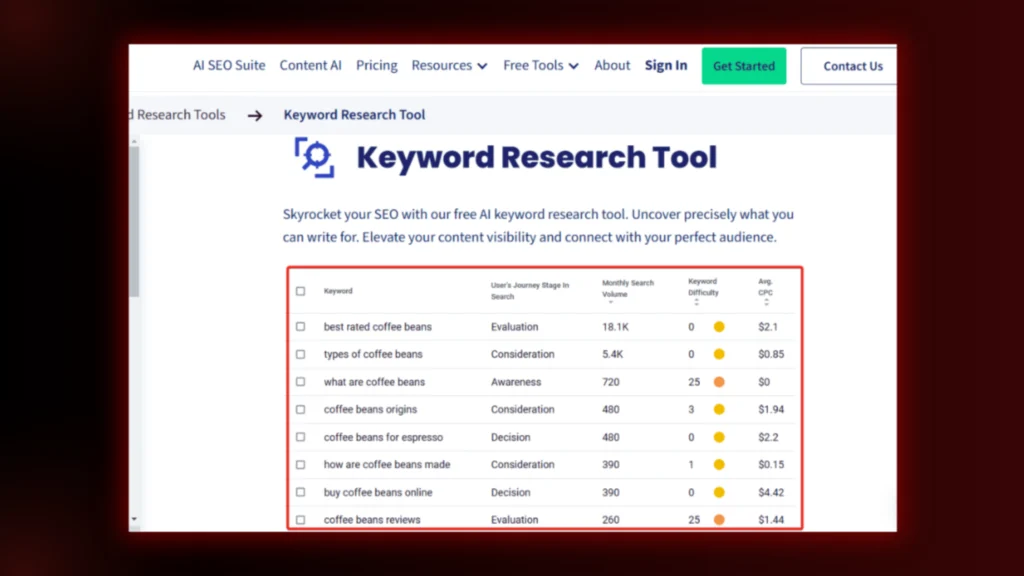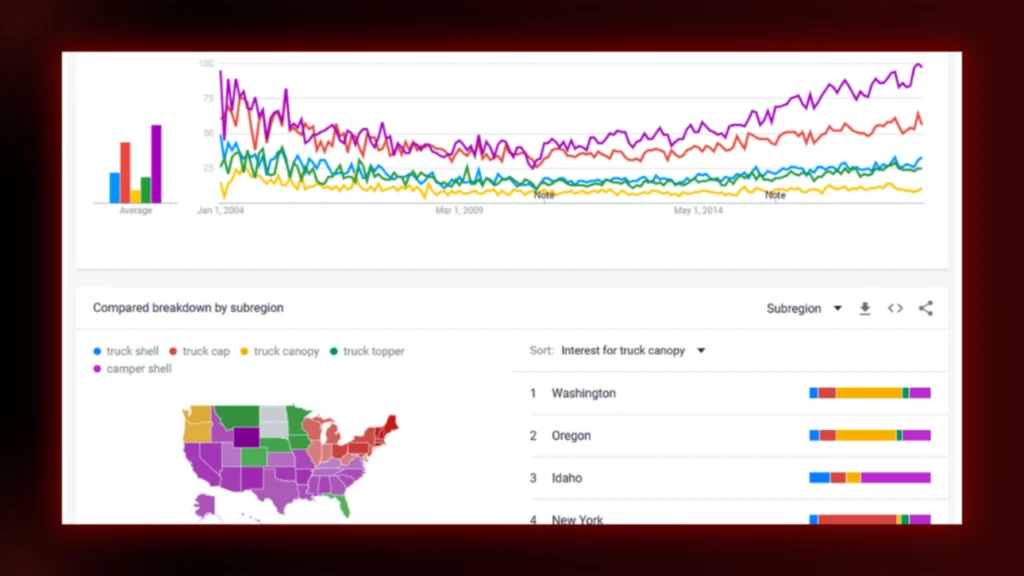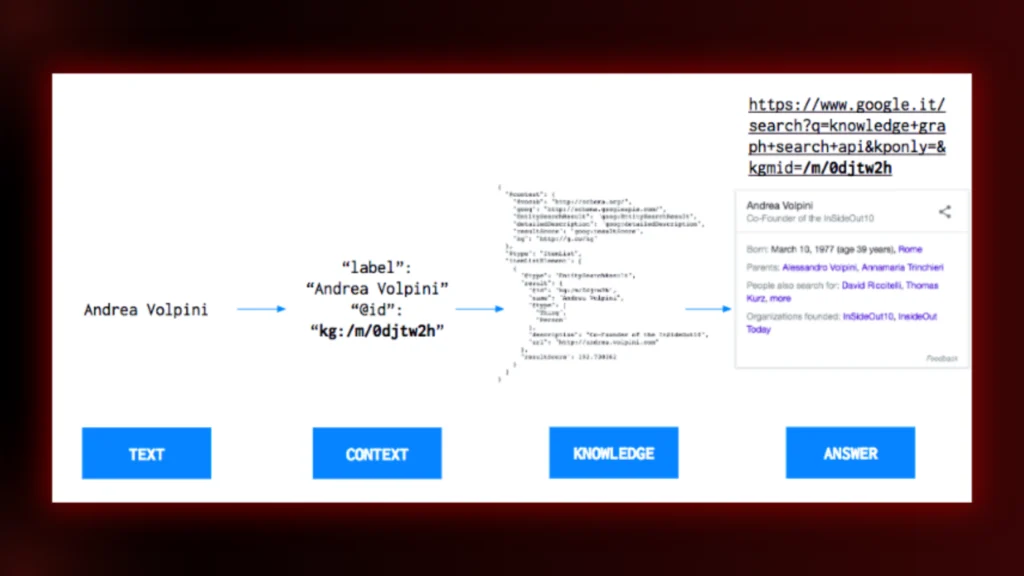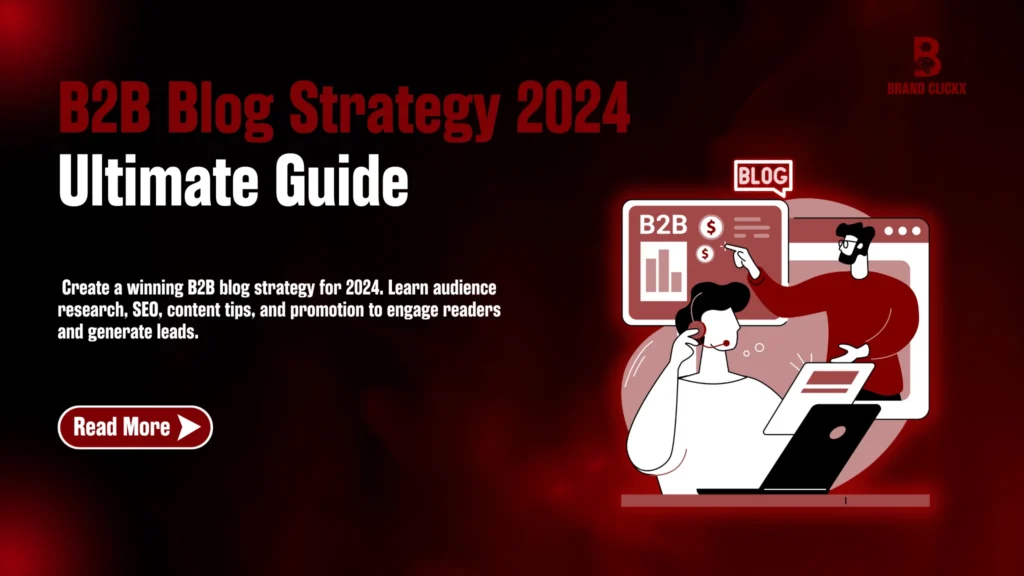If you’re still relying on outdated keyword research methods, you’re already behind. The days of manually sifting through search volumes, guessing intent, and hoping for the best are over. Today, AI-powered keyword research strategies are reshaping how businesses dominate search engines – faster, smarter, and with precision.
As a business owner, your time is your most valuable asset. You don’t have hours to analyse spreadsheets or chase keywords that won’t convert. You need data-driven insights, not guesswork. AI takes the grunt work out of SEO, identifying high-impact keywords, analyzing competition, and even predicting trends before they explode.
The result? More traffic, better rankings, and a marketing strategy that moves the needle.
But here’s the problem: Most founders either don’t know where to start or they fall into the trap of generic AI tools that spit out irrelevant keywords with no real strategy. In this guide, we’ll explain exactly how AI-driven keyword research works.
Let’s start!
Top 5 AI-Powered Keyword Research Strategies
1. Select the right AI tool for your business

Many keyword research tools have an AI, but finding the right one can be overwhelming. Every tool isn’t alike and the best tool for your business depends on your business-specific needs and budget.
If you have to choose, you can consider the following factors:
- Does the tool provide topic clustering, search intent analysis, question identification and competitor insights?
- What functionalities are critical to what workflow you are doing now?
And it is important to consider ease of use. If you can’t figure out how to use a fancy tool it’s of no use. Or each simple action is five clicks. Try to find clear interfaces and helpful tutorials.
AI Tools come with free provisions with clear features for enterprise-level pricing. Look for a plan that works with your budget and you have the space to grow up as necessary.
Good AI tools for keyword research:
- MarketMuse: A comprehensive SEO suite ideal for in-depth content optimization and strategic content planning. Offers a limited free plan.
- Scalenut: Produces average AI-generated content but excels in keyword analysis and clustering.
- Keyword Insights: Leverages AI-driven keyword analysis to identify keyword clusters and accurately match search intent.
- Frase: A cost-effective alternative to MarketMuse that supports content research, writing, and optimization through multiple AI-driven processes.
Read more to learn about the best AI SEO-based tools
2. Plan in clusters
The problem with keyword research was that it was all about individual terms for too long. Writing random articles in your niche and hoping something would show up in the SERPs had been a fairly common thing to do.
However, Google itself has evolved and so should your strategy. Constantly changing what they want you to do in the search engine and what their search gods want is too much to ignore, and eventually, you will be hit with one of the major algorithm updates.
If you want to be able to rank in the same cluster consistently then you need to understand both kinds of clusters: topic clusters and keyword clusters.
Topic clusters: Building authority

A topic cluster consists of a sequence of connected pieces of articles, which entirely focus on one central topic. Say you have an educational blog on how to be vegan in your daily life, so maybe there are topic clusters like:
- Essential vegan baking ingredients
- Vegan baking substitutions
- Best vegan desserts
A cluster contains a set of articles which link to each other using anchor text relevant to the cluster’s general topic.
This is an approach that tells Google you are not just throwing random keywords at the wall, but you are demonstrating expertise in a particular area.
Pro tip #1: Building multiple clusters at once is not the best way to go: stick to one cluster order. Google will even tell you that a jack of all trades is a master of none over nonexistent rankings.
Imagine: What do you want to be remembered for? Followed by making clusters of content around each idea.
Your existing content is grouped by AI SEO tools such as cluster and then analyzed for how to improve your SEO to improve the chance of your content getting ranked high by Google. They also might be able to suggest more topics to rank for, as based on the traffic of your competitors.
Read more about SEO keyword research for high-competition
3. Create Mind Mapping Towards Your content strategy

Your secret weapon for creating a laser-focused content strategy is mind maps. To do this they also help you visualize your main core topics so that you can be building authority in the right places and stay focused on those and not be distracted on the bypaths.
Choose your main website topic and top 3 subtopics that you want to win traffic with and branch out within a good cluster of content centred around each then branch out from there.
For our example, if your focus topic for your first branch is “vegan baking substitutions” then build this as a branch in your mind map with possible article title branches beneath it. Either you brainstorm them yourself; or use an AI tool to come up with some initial ideas.
So popular are these AI mind-mapping tools:
- Ayoa– AI-supported mind mapping with colourful templates, team collaboration, and project management.
- Visualizing brainstorming is easily done with Miro, a collaborative whiteboard-style tool, and has a mind map.
- You don’t necessarily need a separate tool to mind map! This functionality is often available in AI-powered task managers, like Taskade and ClickUp as well as in some popular team collaboration tools you might currently be using.
4. Follow Trends

If it gets trained to identify the trends early, then you will have a very serious competitive advantage. If subjects are new, the first such websites will quickly establish themselves as well-known brands in their niches.
People begin to remember your name because you frequently give them new insights before anyone else. New topics are unlikely to appear for months or at all for many traditional keyword research tools. That’s your chance because most SEO professionals and bigger companies will ignore those keywords.
Be ahead of the curve! The way to become the go-to website in your niche is by leveraging trends. If you know your industry well enough, you will know which zero-volume keywords are worth covering based on your gut feeling.
Throughout the years of writing SEO content, I’ve seen hundreds of topics that are worth zero volumes (in terms of traffic) but which brought in thousands of monthly visitors through variations of the topic’s keyword – and not because no one else bothered to write about them.
5. Utilize semantic SEO tools for detailed keyword opportunities

Content optimization tools can help you to improve your article further so that it builds a buzz for more similar keywords once you have a target keyword (or your article ready around it). With the power of AI, they do a semantic analysis for your text and determine which terms might be missing or potential opportunities.
Some can be put simply as these tools compare your article to the top-ranking competitors, and then tell you which words they all have, but you don’t.
This technique isn’t enough to raise your post’s rank unless your content is average. This might just give you enough edge for ranking when the article is compatible with yours as far as quality and authority is concerned.
Pro tip: You need to avoid spamming your keyword in the same way as it was done 15 years ago, instead, make a list of keyword variations and mention each one only once. It will keep your content out of search engines’ spam radar without marking it as spammy.
Read more about b2b keyword research
Final Thoughts
If you implement all these aforementioned 5 AI-powered keyword research strategies, no one will be able to stop you from throne the first page of SERPs. In case you are still confused or want a professional team to handle this on your behalf, BrandClickX is here to ease your worries!
Contact us for more details.
FAQs
1. What are AI-Powered Keyword Research Strategies?
AI-Powered Keyword Research Strategies involve using artificial intelligence to analyze search trends, user intent, and competition to identify the most effective keywords for SEO. These strategies help businesses optimize their content for better search engine rankings.
2. How do AI-Powered Keyword Research Strategies improve SEO?
AI-Powered Keyword Research Strategies enhance SEO by providing data-driven insights, predicting search trends, and identifying high-ranking keywords. They help marketers optimize their content with the right keywords to increase visibility and organic traffic.
3. Which tools are best for AI-Powered Keyword Research Strategies?
Popular tools for AI-Powered Keyword Research Strategies include SEMrush, Ahrefs, Google Keyword Planner, and SurferSEO. These tools leverage AI to generate keyword suggestions, analyze search intent, and assess competition.
4. How accurate are AI-Powered Keyword Research Strategies?
AI-Powered Keyword Research Strategies are highly accurate as they analyze vast amounts of data in real time. They use machine learning algorithms to predict keyword performance and user intent, making them more precise than traditional keyword research methods.
5. Can AI-Powered Keyword Research Strategies help with long-tail keywords?
Yes, AI-Powered Keyword Research Strategies are excellent for identifying long-tail keywords. AI tools analyze search queries to find less competitive but highly relevant keywords that can drive targeted traffic.



